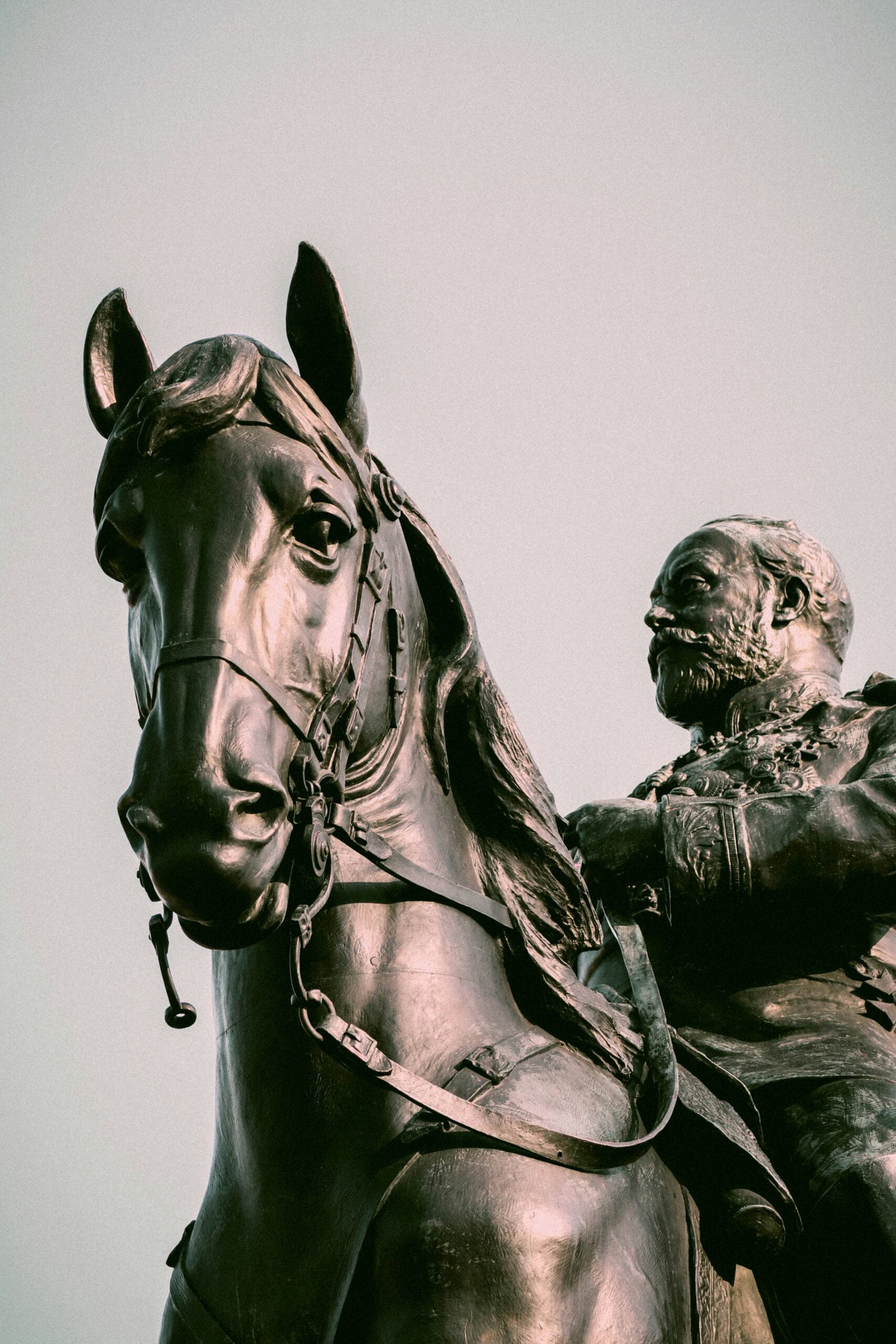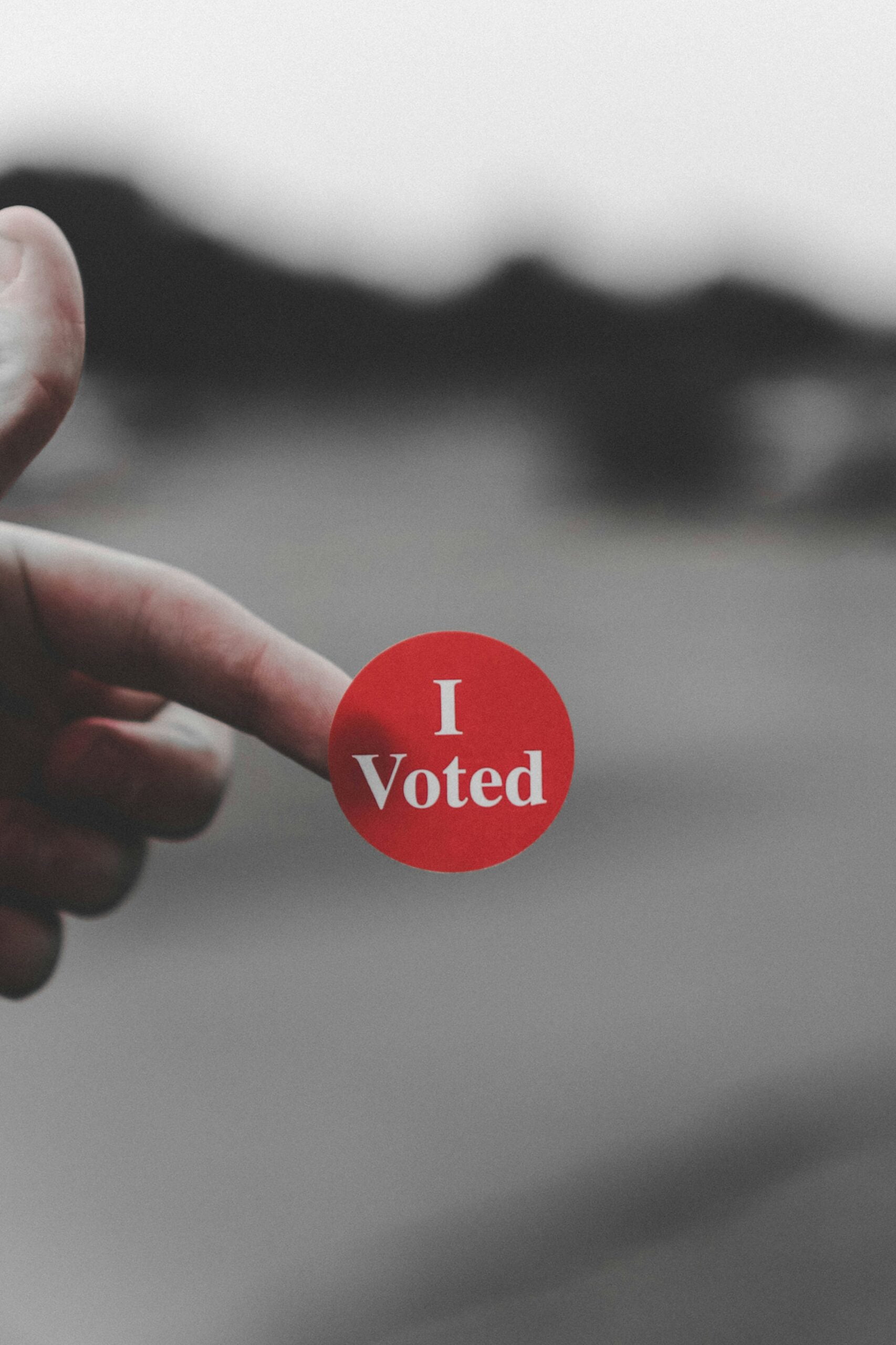Introduction to Libertarianism
Libertarianism is a political philosophy deeply rooted in the principles of individual liberty, self-ownership, and free choice. This ideology posits that each person inherently owns themselves and should, therefore, have the autonomy to govern their own lives without undue interference from external forces. At its core, libertarianism staunchly supports the freedom of individuals to make choices about their personal lives, as long as these choices do not infringe on the rights of others. This emphasis on personal liberty forms the foundation upon which all other libertarian beliefs are built.
Table of Contents
One of the key tenets of libertarianism is the advocacy for minimal government intervention. Libertarians argue that the role of government should be significantly limited, maintaining that when governments are expansive and intrusive, they often impede individual freedoms and hinder personal responsibility. According to this viewpoint, the primary functions of government should be confined to protecting individuals from aggression, theft, breach of contract, and fraud. Beyond these fundamental duties, libertarians assert that most other governmental activities are unnecessary and can lead to overreach and inefficiency.
The belief in self-ownership extends to the concept of property rights within libertarianism. Just as individuals own their bodies and lives, they also have the right to own and control property acquired through voluntary transactions. This principle stands in opposition to coercive redistribution policies, as it upholds that individuals should be free to utilize their resources as they see fit, without compulsory reallocation by the state.
In essence, libertarianism envisions a society where personal freedom is paramount, and individuals exercise a high degree of autonomy over their own lives. By prioritizing individual liberties and constraining the scope of government intervention, libertarians believe that a more prosperous, just, and free society can be achieved. The subsequent sections will delve deeper into the foundational principles of libertarianism, providing a comprehensive understanding of this influential political philosophy.
The Principle of Individual Liberties
One of the fundamental tenets of libertarianism is the principle of individual liberties. At its core, this principle asserts that individuals have the inherent right to make their own choices and govern their own lives without undue interference from external forces, notably the government. This conviction is pivotal to libertarian ideology, emphasizing personal autonomy and self-ownership as the bedrock of a free society.
The libertarian perspective posits that individual liberties are essential for fostering personal responsibility, creativity, and human flourishing. This is evident in various aspects of life that require freedom of choice, such as freedom of speech, freedom of association, and property rights. Within a libertarian framework, freedom of speech is revered as the cornerstone of an open society, enabling individuals to express their thoughts and ideas without fear of censorship or retribution. This freedom is not just about verbal expression but extends to various forms of communication, including writing, art, and digital media.
Similarly, freedom of association is integral to individual liberties from a libertarian viewpoint. This involves the right to form or join groups, organizations, and communities based on shared interests or goals. Whether it’s joining a political party, a social club, or a business partnership, the autonomy to associate freely is seen as a reflection of one’s personal liberty. The ability to choose one’s companions and collaborators is fundamental to the libertarian vision of a society where individuals are free to pursue their interests and ambitions.
Property rights are another critical dimension of individual liberty in libertarianism. The belief here is that individuals have the right to own and control their property, as long as they do not infringe upon the rights of others. This includes tangible assets like land and possessions, as well as intangible assets such as intellectual property. The assurance of property rights is viewed as vital not only for personal autonomy but also for economic efficiency and innovation, where individuals can reap the benefits of their labor and investment.
In essence, the principle of individual liberties is about recognizing and safeguarding the autonomy of individuals to shape their own destinies. By upholding freedoms such as speech, association, and property rights, libertarianism seeks to create a society where individuals are empowered to thrive independently, with minimal interference from governing bodies.
Self-Ownership and Responsibility
Central to libertarianism is the principle of self-ownership, which asserts that individuals have an inherent right to control their own bodies and lives. This core tenet posits that every person is the sovereign owner of themselves, empowering them with the autonomy to make decisions independently and responsibly.
Under the doctrine of self-ownership, individuals possess full authority over their bodies, including the right to determine what they put into them and how they use them. This principle extends further to encompass an individual’s labor and the fruits of that labor. According to libertarian beliefs, each person is entitled to the rewards and outcomes of their work, free from external coercion or confiscation.
Personal accountability is a natural extension of self-ownership. If individuals are the rightful owners of their actions and decisions, they also bear the responsibility for the consequences. This accountability fosters a societal structure where liberty and personal responsibility are intricately linked. Individuals are encouraged to take ownership of their lives, making informed choices while being prepared to handle the outcomes, whether positive or negative.
In a libertarian framework, the respect for individual autonomy is paramount. It underscores the belief that people should have the liberty to make personal decisions without unwarranted interference from authorities. This includes decisions about their healthcare, education, and financial endeavors. Such autonomy is seen not merely as a right, but as a vital component for a free and thriving society.
Ultimately, self-ownership in libertarianism is not just about freedom; it is equally about the moral and ethical imperatives that come with it. By recognizing individuals as self-owners, libertarian thought promotes a view of society where individual liberty is balanced with personal responsibility, forming a foundation for mutual respect and cooperative existence.
Free Choice and Market Economy
In libertarian thought, the concept of free choice is foundational. Libertarians assert that individuals should have the liberty to make decisions regarding their own lives, provided they do not infringe upon the rights of others. This autonomy is best illustrated within the context of a market economy, where the principles of voluntary exchange and free competition are paramount.
A market-based economy thrives on the dynamic interactions between buyers and sellers, with prices and production levels naturally shaped by the forces of supply and demand. In this framework, libertarians view the free market as the most efficient mechanism for the allocation of resources. It encourages innovation, as businesses strive to meet consumer demands in the most effective manner.
The absence of excessive governmental intervention is a cornerstone of this economic model. According to libertarian principles, when individuals are permitted to engage freely in trades and contracts, the cumulative outcome is a more prosperous society. Each transaction, when entered into voluntarily, is presumed to benefit all parties involved, thus driving overall economic progress.
The libertarian advocacy for a free market extends to the belief that competition fosters a healthy environment for growth. Companies are motivated to enhance their products and services, leading to a continuous cycle of improvement and better value for consumers. By allowing businesses to operate without undue restrictions, libertarians argue that innovation is not only incentivized but becomes a natural byproduct of the system.
In conclusion, the link between individual liberty and a market economy stands central to libertarian ideology. Through the prism of free choice and unhampered markets, libertarians envision a society where people are empowered to pursue their own paths to prosperity, contributing to an overall flourishing and dynamic economy. The principle that voluntary exchanges lead to mutual benefit underscores their faith in the power of free markets to drive societal advancement efficiently and effectively.
Minimal Government Intervention
Libertarians strongly advocate for minimal government intervention, emphasizing the necessity of a limited government that is confined to essential functions. This perspective is deeply rooted in the belief that an expansive government can encroach on individual liberties and stifle personal autonomy. Therefore, libertarians contend that the government’s role should be restricted predominantly to protecting property rights, enforcing contracts, and ensuring national defense.
From a libertarian viewpoint, property rights are fundamental to individual liberty. The protection of these rights ensures that individuals can possess and utilize their property without undue interference or confiscation. Enforcing contracts is equally crucial, as it upholds the agreements and exchanges freely entered into by consenting parties, thereby maintaining trust and order in economic interactions. Furthermore, national defense is deemed an indispensable function, as it safeguards the territory and the people from external threats, ensuring a stable environment wherein individual freedoms can flourish.
Libertarians argue that excessive government regulation and high taxation hinder economic growth and personal freedom. They believe that individuals should retain the majority of their earned income and decide how it is spent, without extensive governmental redistribution. This principle stems from the conviction that individuals, rather than the state, are better suited to decide how their resources are allocated and utilized.
Moreover, reducing government regulations is seen as a vital step towards fostering an environment conducive to innovation, entrepreneurship, and free-market competition. Overregulation, they argue, can create barriers to entry, limit choices for consumers, and ultimately impede economic dynamism. By minimizing these regulations, libertarians assert that the natural mechanisms of supply and demand can operate more efficiently, leading to increased prosperity and individual empowerment.
In conclusion, the concept of minimal government intervention is a cornerstone of libertarian philosophy, advocating for a government limited to specific, essential functions. This approach is believed to promote individual freedom, economic growth, and a more dynamic, self-regulating society.
Libertarian Perspectives on Social Issues
Libertarians advocate for minimal government intervention in personal matters, rooted in the principle of individual liberty and self-ownership. This perspective is clearly reflected in their approach to various social issues, including drug policy, marriage equality, and freedom of expression. Their stance on these topics demonstrates a commitment to allowing individuals the freedom to make choices based on their values and beliefs, free from excessive governmental control.
When it comes to drug policy, libertarians argue for the decriminalization or legalization of all drugs. They believe that individuals should have the autonomy to decide what substances they consume, emphasizing the need for a more compassionate approach to drug addiction, which often involves treating it as a health issue rather than a criminal one. This stance aligns with their broader view that personal choices, so long as they do not harm others, should not be subject to government restriction.
On the subject of marriage equality, the libertarian viewpoint staunchly supports the notion that consenting adults should have the right to marry whom they choose, regardless of gender or sexual orientation. Libertarians argue that the government should not dictate the terms of marriage, which is considered a personal and often spiritual commitment. They advocate for the equal treatment of all individuals under the law, ensuring that the principles of freedom and equality are upheld in familial and marital affairs.
Freedom of expression stands as a cornerstone of libertarian ideology. Libertarians assert that individuals should have the unrestrained right to express their thoughts, ideas, and beliefs without government interference. This encompasses a wide range of expressions, from spoken and written communication to artistic and political expression. By protecting the right to free speech, libertarians believe that a society can foster a robust exchange of ideas, encouraging personal growth and societal progress.
In essence, libertarians maintain that individual freedoms should take precedence in social matters. Their consistent opposition to government intrusion seeks to preserve personal autonomy, allowing citizens to live their lives in accordance with their own values and beliefs. This perspective highlights the core libertarian tenet that upholding individual liberty is paramount for a just and flourishing society.
Criticisms of Libertarianism
Libertarianism, while advocating individual liberty and minimal government intervention, is not without its critics. One prevalent concern is that libertarian policies might result in insufficient provision of public goods. Public goods, such as national defense, infrastructure, and environmental protection, typically require collective funding and management, areas where critics argue a purely voluntary approach may fall short. They posit that relying solely on individual contributions and private entities could lead to underfunding or uneven availability of essential services.
Another frequent criticism targets the potential for increased inequality under libertarian frameworks. By minimizing redistribution and social welfare programs, critics contend that the wealth gap could widen, exacerbating socio-economic disparities. They argue that without robust governmental intervention, those at the lower end of the socio-economic spectrum might struggle to access basic necessities, healthcare, and education, thereby perpetuating a cycle of poverty and limited opportunity.
Concerns are also raised regarding support for the vulnerable. Opponents argue that notions of individual responsibility and self-ownership might overlook societal obligations toward the elderly, disabled, and other marginalized groups. Critics worry that in the absence of government programs, these individuals might lack adequate care and support, leading to further marginalization and hardship.
Libertarians respond to these criticisms by emphasizing the power of voluntary cooperation and private initiatives. They argue that communities and private organizations can and do step in to provide necessary services and support. Libertarians often point to examples of charitable institutions, mutual aid societies, and other non-governmental organizations successfully addressing public needs. They hold that incentivizing private enterprise encourages innovation and efficiency, potentially offering more effective solutions than government programs.
Moreover, libertarians contend that by allowing individuals to retain more of their earnings, people are better positioned to support causes and services they value, fostering a sense of personal responsibility and community involvement. In their view, a market-driven approach can achieve a balance between individual freedom and societal welfare, without the coercive mechanisms of state intervention.
Libertarianism in Practice
Libertarian principles have found practical applications across various countries and regions, reflecting the versatility and adaptability of this political philosophy. In essence, libertarianism emphasizes individual liberty and self-ownership, leading to policies that reduce state intervention and increase personal freedom.
One notable example is Switzerland, often cited for its decentralized government model, allowing for significant political autonomy at the cantonal and municipal levels. This framework aligns with libertarian ideals by empowering local governance and ensuring that decisions are made closer to the affected populations. Such a system fosters greater accountability and responsiveness to the needs of citizens, embodying the principle of limited government intervention.
Another illustrative case is Hong Kong prior to its recent political changes. Historically, Hong Kong operated under a laissez-faire economic policy, characterized by minimal government interference in business and trade. This environment facilitated rapid economic growth, transforming Hong Kong into a global financial hub. The success story of Hong Kong underscores how reducing regulatory burdens and allowing market forces to operate freely can lead to significant economic prosperity.
Libertarian thought has also influenced specific policies in various countries. For instance, the decriminalization of drugs in Portugal reflects libertarian advocacy for personal freedom and harm reduction. Since implementing this policy in 2001, Portugal has seen a decrease in drug-related deaths and HIV infections, highlighting the potential benefits of adopting a more libertarian approach to social issues.
Prominent libertarian figures and organizations continue to shape and promote these ideas. The Cato Institute, a leading libertarian think tank in the United States, actively researches and advocates for policies based on limited government and individual freedom. Influential libertarians like Ron Paul and Ayn Rand have also contributed significantly to popularizing and advancing libertarian ideology through their work and advocacy.
These real-world applications and influential figures demonstrate how libertarian principles can be effectively implemented, offering insights into their potential impacts on society. By reducing government intervention and promoting individual autonomy, libertarianism seeks to create a more dynamic and prosperous society where personal freedom is paramount.



Pingback: The Libertarian Party’s Porcupine: A Symbol of Independence and Freedom
Pingback: The Libertarian Party’s Stance on Immigration: An Overview
Pingback: Why Are Libertarians Controversial?
Pingback: Navigating Politics with CNN: An In-Depth Look at News, Opinion, and Analysis
Pingback: What Do Libertarians Disagree With?
Pingback: Are Libertarians Conservative or Liberal? A Deep Dive into Libertarian Ideology
Pingback: As Voters Suffer Presidential Election Deja Vu, Chase Oliver Wants to Be Another Option
Pingback: Understanding Classical Liberalism: Foundations, Evolution, and Contemporary Perspectives
Pingback: Conservatism vs. Liberalism: Key Ideological Differences and Beliefs